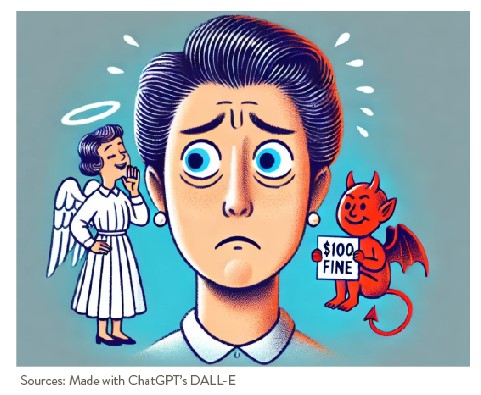
No stocks, no bonds, no squiggly lines on graphs this time. Just a moral dilemma which was raised in an article in the year-end edition of The Economist. Here goes. You are sitting on a dock with a rescue rope next to you. You see a man floundering in the water. What do you do? Throw the rope to him or get up and walk away? Obviously, the right thing to do is to throw the rope and help. If you get up and walk away, you are not only a moral monster, but you will also be severely punished. Right? Well actually, wrong, based on the history of American law.
The American legal system is based on Common Law, the idea that decisions by judges over the years set a precedent for current cases. Earlier courts ruled there is no liability for those who failed to “warn, rescue or call for assistance” in case of an emergency.
Standards fortunately have changed over the years. All fifty states today have Good Samaritan laws, which protect individuals from civil liability when providing reasonable assistance in an emergency. (Educational sidelight: the term Good Samaritan comes from a parable in Jesus’ time. A Jew walking from Jerusalem to Jericho is robbed and left to die by the side of the road. A priest and others walk by, but a Samaritan, who typically would be an enemy of the Jews, stops and gives aid). Now back to the story: So those bystanders who might be wary of getting involved are now assured by Good Samaritan laws, of legal protection when they intervene. But there is no requirement that bystanders must rescue or call for assistance in the case of an emergency.
Only three states (Minnesota, Rhode Island, and Vermont) have passed “duty to rescue” laws and another three states have “duty to report” laws (Hawaii, Washington, and Wisconsin). There have been very few instances of prosecution under these laws due to the difficulty of defining terms. Vermont basically admits this by setting the fine for failure to rescue at a very low $100.
Libertarians argue that Bad Samaritan laws (requiring bystanders to help in a rescue) are a violation of an individual’s rights, and others argue that the whole subject is a slippery slope. For instance if you encounter a drowning man, most people would agree it is their duty and responsibility to toss the victim a life raft, but what if you encounter a starving man, do you have the duty to provide him food, or if you encounter someone sleeping out on a very cold night, do you have the obligation to provide them shelter?
Opioid deaths over the past decade have risen significantly. In Vermont there were 114 opioid deaths in 2019. By 2023 this number had increased to 231. The State has amended its Samaritan law to provide protection from criminal liability for those who call for help from the scene of an overdose even if they don’t provide further help such as administer Naloxone if it is available.
At first glance, the idea of helping in an emergency seems simple and straightforward. But writing a one-size-fits-all Samaritan Act for everyone gets to be really complicated. I knew there was a reason I didn’t go to law school!